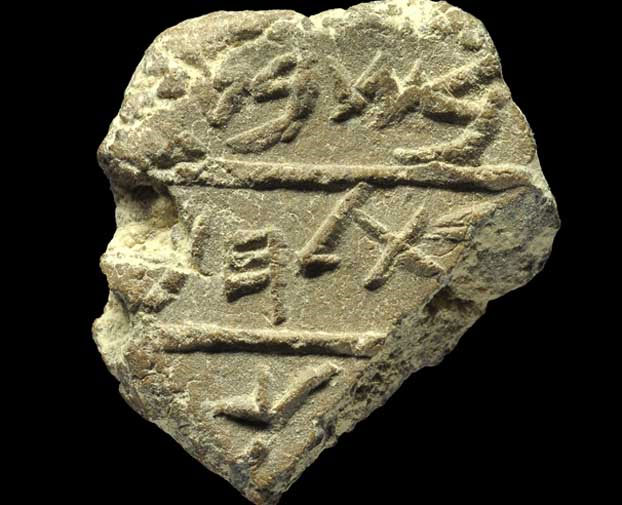New discovery of God's land
Israeli archaeologists have unearthed a 2,700-year-old clay seal named Bethlehem, the city where Jesus was born.
According to Discovery, this seal was discovered during the selection of debris at the excavation that took place in the old city of Jerusalem. The clay seal is about the size of a coin, engraved with ancient Hebrew words: 'Saturday', 'Bethlehem', and 'offering the king' .
Archaeologist Eli Shukron, working at the Israeli Antiquities Administration, said: 'It seems that in the seventh year of the dynasty (it is not yet known if the reign of King Hezekiah, Manasseh or Josiah), there is a lot the shop trails from Bethlehem to Jerusalem ' . The soil seal was most likely placed in a silver or agricultural product shipment, such as wine or wheat in the eighth century or the 7th century BC.

Close up of the seal. (Photo: Discovery)
Shukron added: 'This is the first time that the name Bethlehem appears outside the Bible, on a seal from the First Temple in Jerusalem (1006 - 586 BC). This proves that Bethlehem is truly a city within the Kingdom of Judah, and even existed before being honored as the city where Jesus was born, not a fantasy place. "
Located in the south of Jerusalem, Bethlehem is first mentioned in the Bible as Ephrath, ie Bathlehem Judah to distinguish it from Bethlehem Zebulun. The city is famous for its connections with Jesus: the land is closely linked to the story of Ruth in the Old Testament, the land of King David - the most famous king in Jewish history and the Lord born.
- Gods in Egyptian civilization
- 9 rare animals in the land of the gods
- Revealing little things to know about the Aztec gods
- How to worship a genius on January 10
- Mysterious land of giant tiger cubs
- Decode the mission of each god associated with the image of dogs
- The Earth is about to lose 1/3 of its food land
- Shocking discovery of the 2.3kg hand of the Romans
- The ancient people offered their sacrifices to the gods
- Types of 'demons, gods' sleep in folk tales
- Surprised revealing about the place of
- Discover new islands in the Arctic
 Discovered an ancient centipede fossil 99 million years old
Discovered an ancient centipede fossil 99 million years old Discovered bat-like dinosaurs in China
Discovered bat-like dinosaurs in China Discovered a 200-year-old bronze cannon of the coast
Discovered a 200-year-old bronze cannon of the coast Discover 305 million-year-old spider fossils
Discover 305 million-year-old spider fossils